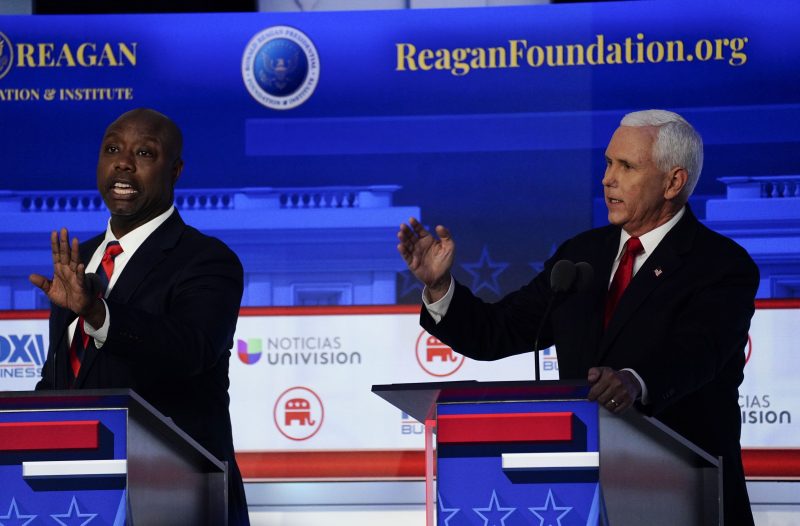In the midst of the political storm brewing for the 2024 presidential election, former Vice President Mike Pence has made a bold statement that has sent ripples through the Republican party. Pence announced that he will not endorse former President Donald Trump for a potential 2024 presidential bid. This decision marks a notable shift in the dynamic between the two political figures, who were once seen as close allies during the Trump administration.
Pence’s announcement has sparked widespread speculation and debate within the GOP, reflecting the deep divisions that continue to persist within the party following the tumultuous events of the past few years. The rift between Pence and Trump appears to stem from the events of January 6, 2021, when a violent mob of Trump supporters stormed the Capitol building in an attempt to overturn the results of the 2020 presidential election. During this unprecedented moment, Pence found himself in a difficult position as he presided over the joint session of Congress to certify the electoral college results, a task that Trump had pressured him to overturn.
Despite facing immense pressure from Trump and his supporters to reject the electoral college results, Pence ultimately fulfilled his constitutional duty and certified Joe Biden’s victory, a move that reportedly strained his relationship with Trump. This pivotal moment served as a breaking point in the once strong bond between the two men, leading to Pence’s recent decision not to endorse Trump for the 2024 presidential race.
Pence’s decision not to endorse Trump carries significant implications for the upcoming election cycle, as Trump has been a dominant figure within the Republican party and continues to wield considerable influence over its base. By distancing himself from Trump, Pence is sending a clear message that he is willing to chart his own course and perhaps position himself as a potential contender for the presidency in 2024.
The fallout from Pence’s announcement underscores the broader challenges facing the Republican party as it grapples with its identity and future direction in the post-Trump era. The party is at a crossroads, torn between those who remain loyal to Trump and those who seek to move beyond his divisive brand of politics. Pence’s stance represents a significant moment in this ongoing battle for the soul of the GOP and raises important questions about the party’s path forward.
As the 2024 presidential election looms on the horizon, the Republican party faces a critical juncture in its history. The decision by Mike Pence not to endorse Donald Trump for another presidential bid is a clear signal that the party is undergoing a period of introspection and realignment. The implications of this decision will reverberate throughout the political landscape, shaping the future trajectory of the GOP and its role in American politics for years to come.


























